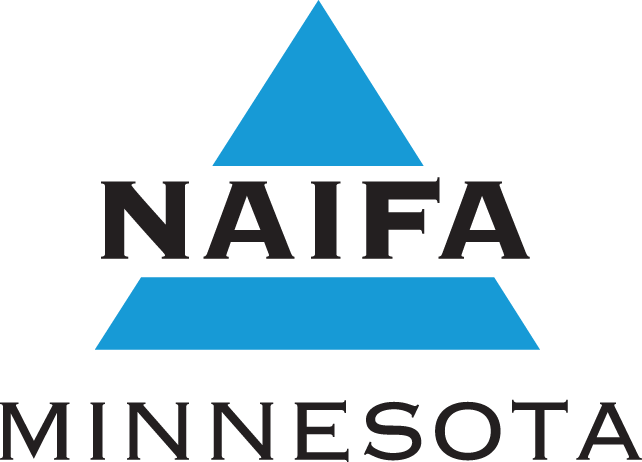Quote of the Week: “The insurance model just doesn’t work for health care!” Rep. Tina Liebling, Chair, Health Finance, and Policy Committee
Reinsurance Bills Moving in Both Bodies
Legislation extending Minnesota’s health reinsurance program continued to make progress in both the Minnesota State Senate and State House this week.
-
The Senate Finance Committee on Wednesday heard and approved H.F. 3472 (Dahms, R-Redwood Falls), which extends the current reinsurance program for health insurance for five years. The State’s current reinsurance program expires December 31, 2022. If it is not extended, premiums in the individual market are projected to increase by 20-30%. It was supported by business and insurance interests, including NAIFA, and was opposed by the Minnesota Nurses Association and SEIU HealthCare Minnesota. The bill was approved and sent to the Senate floor.
-
The House Commerce Finance and Policy Committee on Wednesday heard and approved the House reinsurance companion bill. HF3717 is being carried by Rep. Zack Stephenson, DFL-Coon Rapids, the Chair of the Commerce Committee. During Committee consideration, amendments were adopted that adds additional well-child checkups to newborns, restricts how health plans and PBMs pay pharmacists and pharmacies, and directs a study that would compare the existing health care delivery model for MA and MinnesotaCare with at least two options including the State running the programs. The bill, as amended, was approved and referred to the Ways and Means Committee.
While the two bills are both moving, there are some sharp differences. The Senate, controlled by Republicans supports the private insurance sector and the role reinsurance plays in sustaining it. Many House Members, which is controlled by DFLers, are skeptical of private insurance and are including provisions in their reinsurance bill that diminishes the role of the private sector and increases the role of government in health coverage.
House Committee Approves Rating Study
The House Commerce Committee on Wednesday approved legislation that directs the Commissioner of Commerce to study disparities between Minnesota’s nine geographic rating areas in individual and small group market insurance rates. It also directs the Commissioner to recommend ways to reduce or eliminate rate disparities between the geographic rating areas and provide stability for individual and small group insurance markets in Minnesota. H.F. 3818 (Haley, R-Red Wing) was introduced in reaction to constituents of Rep. Haley voicing concern about their health insurance premiums being $1,000 higher per month than neighbors across the road in an adjacent county. The bill was laid over for possible inclusion in the omnibus commerce finance and policy bill.
Lillie introduced:
H.F. 4031, A bill for an act relating to insurance; providing for modification or suspension of certain requirements in specific instances; amending Minnesota Statutes 2020, section 61A.02, by adding a subdivision.
The bill was read for the first time and referred to the Committee on Commerce Finance and Policy.
H.F. 4095, A bill for an act relating to human services; establishing transitional cost-sharing reduction, premium subsidy, small employer public option, and transitional health care credit; expanding eligibility for MinnesotaCare; modifying premium scale; requiring recommendations for alternative delivery and payment system; amending Minnesota Statutes 2020, sections 62V.05, by adding a subdivision; 256L.04, subdivisions 1c, 7a, 10, by adding a subdivision; 290.06, by adding a subdivision; Minnesota Statutes 2021 Supplement, sections 256L.07, subdivision 1; 256L.15, subdivision 2; proposing coding for new law in Minnesota Statutes, chapter 62V.
The bill was read for the first time and referred to the Committee on Health Finance and Policy
H.F. 4218, A bill for an act relating to health; authorizing in-home daycare cooperative health plans; proposing coding for new law in Minnesota Statutes, chapter 62H.
The bill was read for the first time and referred to the Committee on Commerce Finance and Policy.
Senator Wiklund introduced--
S.F. No. 3907: A bill for an act relating to human services; establishing transitional cost-sharing reduction, premium subsidy, small employer public option, and transitional health care credit; expanding eligibility for MinnesotaCare; modifying premium scale; requiring recommendations for alternative delivery and payment system; amending Minnesota Statutes 2020, sections 62V.05, by adding a subdivision; 256L.04, subdivisions 1c, 7a, 10, by adding a subdivision; 290.06, by adding a subdivision; Minnesota Statutes 2021 Supplement, sections 256L.07, subdivision 1; 256L.15, subdivision 2; proposing coding for new law in Minnesota Statutes, chapter 62V.
Referred to the Committee on Health and Human Services Finance and Policy








